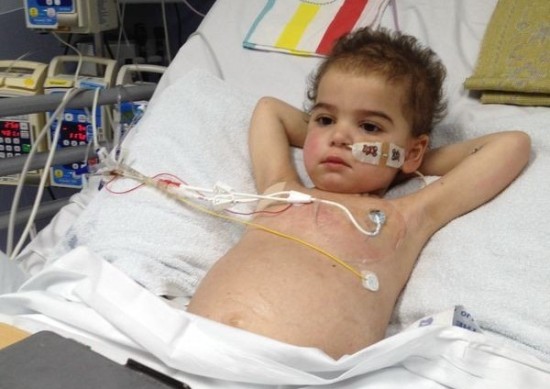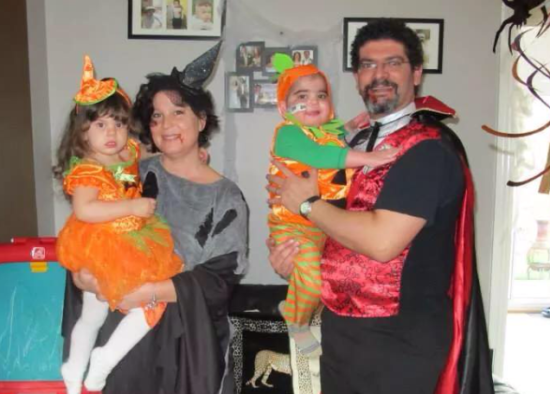Debbie-Sue Farrell recounts the terrible moment she found out her son had a life-threatening disease and talks about how all parents should listen to their instinct when it comes to a poorly child.

My son Aaron got chicken pox last year, two weeks after his twin sister. Five days later, when the spots had scabbed over, I thought he would be returning to nursery. However, that night Aaron spiked a fever of 39°C and, despite giving him Calpol, his fever didn’t subside. We made numerous trips to our GP and local hospital every day for a week until they finally admitted him.
HLH is an immune system disorder and, while it can affect people of any age, it’s most common in babies and toddlers. It can rapidly become fatal and without effective treatment many patients die. The treatment for HLH is chemotherapy, high dose steroids and, in some cases, a bone marrow transplant.
It was a good job my husband and I kept going back, as we soon learned that the chicken pox had sent Aaron’s immune system into overdrive and he had secondary haemophagocytic lymphohistiocytosis (HLH).
Thankfully HLH is rare – there is a one in a million chance worldwide of getting it – but because of this even doctors might not spot the early signs, so it’s important to raise awareness.
The initial symptoms of HLH mimic the flu and many parents’ stories begin the same way – their child is sick, not getting better and they are being dismissed with ‘it’s just a virus, your child needs more antibiotics and time, they’ll be fine’.
It’s important to keep in mind the most common symptoms of HLH are:

Aaron was transferred to Birmingham Children’s Hospital (BCH) and stayed there for three months – with two months in intensive care and high dependency.
Our Christmas came early last year when Aaron was discharged in October, albeit with a bag full of drugs that he had to take every day. We celebrated with a Halloween party.
My husband had to take Aaron to BCH twice a month for his chemo until he completed his course recently.
Always listen to your instinct if you think something is seriously wrong with your child, especially as babies can deteriorate very quickly.
Seek help if you need to and talk to your GP or midwife.
Given our experience, if you think something is seriously wrong, or despite medication your child has a fever for over five days (a fever is classed as over 37.5ºC), speak up and trust your instincts.
If your doctor hasn’t already done so, ask for blood tests (including a Ferritin test) and a Complete Blood Count (CBC).
Aaron has been very lucky. If it wasn’t for our cousin, Shahenda, a paediatrician in the US, who spoke directly to our consultant in hospital and insisted on vital blood tests, Aaron might not be with us today.
For information and support after a challenging experience of pregnancy, birth or parenthood, call our helpline on 0300 330 0770.
Find out about our Early Days courses.